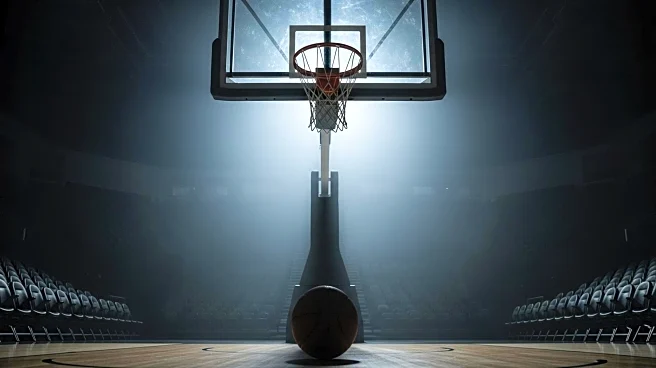What's Happening?
Dawn Staley, the head coach of South Carolina's women's basketball team, recently expressed skepticism about the NBA's readiness to hire a female head coach. Staley, who interviewed for the New York Knicks
head coaching position earlier this year, shared her doubts during an interview with ESPN's Myron Medcalf. Despite her impressive credentials, including leading South Carolina to multiple NCAA championships and being inducted into the Naismith Memorial Basketball Hall of Fame, Staley was not considered a finalist for the Knicks job, which ultimately went to Mike Brown. Staley's comments reflect a broader concern about gender equality in professional sports coaching roles, as no woman has yet been appointed as a head coach in the NBA.
Why It's Important?
Staley's remarks highlight ongoing challenges in achieving gender equality in professional sports, particularly in leadership roles. Her skepticism underscores the barriers women face in breaking into traditionally male-dominated fields, such as NBA coaching. The potential impact of hiring a female head coach in the NBA could be significant, offering a pathway for more women to enter high-level coaching positions and challenging existing gender norms. However, Staley's concerns about the scrutiny and criticism a female coach might face suggest that societal attitudes and organizational readiness are critical factors in this transition. The discussion around Staley's interview and her subsequent comments may prompt further dialogue on gender diversity in sports leadership.
What's Next?
While Staley remains committed to her role at South Carolina, her willingness to support other women aspiring to be NBA head coaches indicates a potential mentorship role she could play in the future. The NBA's approach to gender diversity in coaching positions may evolve, influenced by public discourse and advocacy for equal opportunities. Organizations may need to prepare for the unique challenges and criticisms that could arise from hiring a female head coach, ensuring robust support systems are in place. The broader sports community may continue to push for more inclusive hiring practices, potentially leading to increased representation of women in coaching roles across various leagues.
Beyond the Headlines
Staley's experience and comments may contribute to a broader cultural shift in how female coaches are perceived and supported in professional sports. The ethical implications of gender bias in hiring practices could lead to increased scrutiny of sports organizations and their commitment to diversity. Long-term, this could influence how young female athletes view their career prospects in sports, encouraging more women to pursue coaching roles. The conversation around Staley's interview may also inspire other industries to examine their gender diversity practices, potentially leading to wider societal changes in leadership representation.









